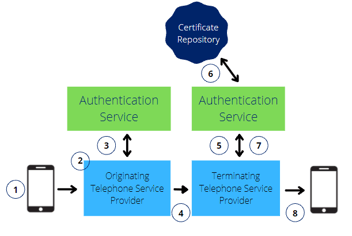October is National Cybersecurity Awareness Month
Keeping Your Social Networking Privacy Settings and Mobile Apps Secure
At Comtel Communications and Simplicity VoIP we are committed to encouraging personal accountability, securing and maintaining digital privacy in the cybersecurity landscape. As Bring Your Own Device (BYOD) is more prevalent in the workplace and as more of us utilize soft phones, mobile apps for both business and personal use, it is more important than ever to be vigilant in adopting best practices when on-line or on your mobile device. Here are a few tips so you can stay protected:
Social Media
An immediate and everyday need is to keep social networking, privacy settings and mobile apps secure. Social networking sites like Facebook, LinkedIn, Instagram, or Snapchat or messaging platforms allow us to share our personal information with friends conveniently keeping us connected. However, consider if what we are posting is putting ourselves at risk for cyber attackers to watch and learn what we are doing?
Enable Privacy
Whenever you choose to post information about yourself online, assume any information you post could become public. Avoid communicating about private details about yourself. It is also wise to avoid posting any images of yourself that you wouldn’t want someone like your parent or employer to see.
Anything you Post Could be Used Against You
The more information you post about your personal life, the easier it is for a cyber attacker to customize an attack against you. For example, if you post extensive information about your family, the hobbies you enjoy, or your upcoming vacation or work trip, a cyber attacker could harvest all of those specific details and create a phishing email or phone call that specifically targets you.
Be Suspicious
If you receive any odd or suspicious messages online from a friend, be cautious and careful how you respond. Do not reply directly via their social media account, as you will be communicating directly with that cyber attacker. Instead, call your friend on the phone to confirm if he or she truly posted the message and needs your help.
Much like email phishing attacks, cyber attackers may attempt to trick you on your own social networking sites. A common attack method is when a cyber attacker hacks into a friend’s social networking account and pretends to be that friend online.
Third-Party Applications
Are we downloading mobile device apps that put us at risk?
Conduct regular audits on your apps. If you no longer need an app, uninstall it or disable its access to your social networking profile, as it could still be collecting data.
Your mobile devices are as vulnerable as your PC, laptop, softphone or tablet. As much as you want to trust an app, take a moment to read the fine print. Many social mobile device apps also support third-party applications. Inspect the details when downloading an app or registering for a new network. Only install applications from trusted sources and only install the apps you truly think you need.
Passwords
Poor, easy-to-guess passwords are one of the most common ways cyber attackers can hack into and take over your social networking accounts. Once they’re in, they can gain access to your contacts, your private information, photographs, and so on.
The best way you can protect your individual social networking accounts is to implement a strong, unique passphrase for each account. Using a different password for each account ensures that if one account is hacked, your other accounts remain secure. Can’t remember them all? Consider using a password manager. (You could link to another pre-posted password blog - http://blog.simplicityvoip.net/how-to-set-a-safe-password-in-todays-dangerous-cyber-world
Multi-factor Verification
It is smart to enable multi-factor verification (sometimes referred to as two-step verification), when available. Multi-factor authentication gives access to an account only after two or more pieces of evidence, such as your password AND a unique code generated by your smartphone or texted to you via messaging, have been successfully provided.
Stay tuned for more helpful information regarding your Cyber Security:
- We’re Victims of a Social Engineering Ocean: We all have a digital footprint both professionally and personally. Both are exposed and we are all at risk for falling victim to social engineering attacks.
- Tips for Browsing Safely: Stay Updated: Encryption: Tethering: Yourself




